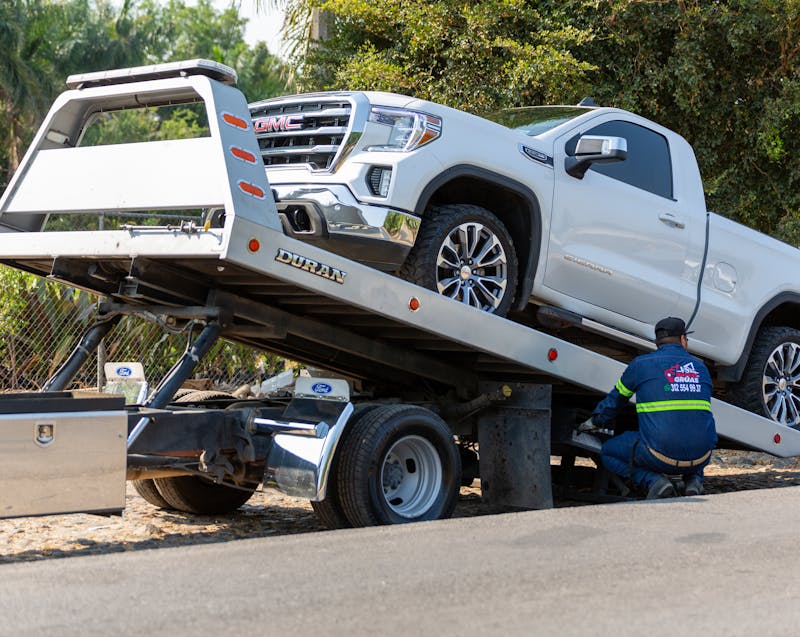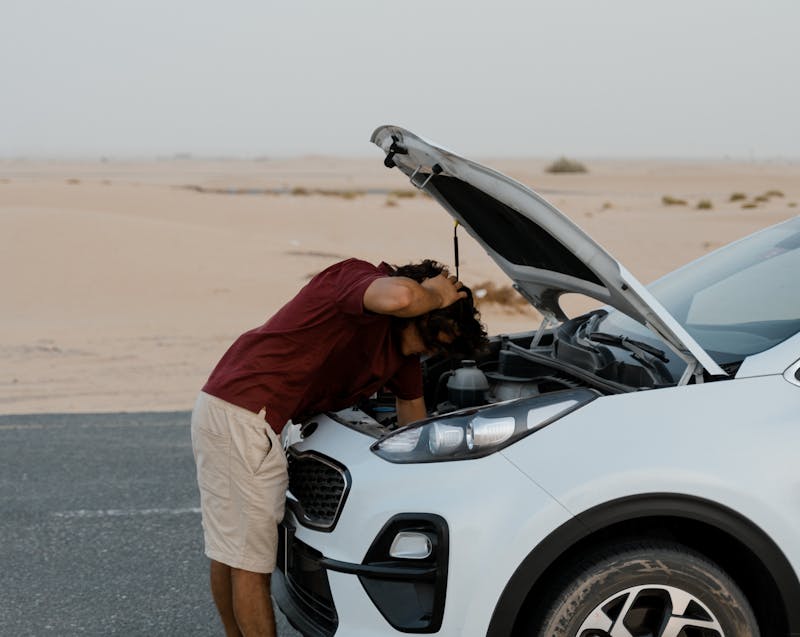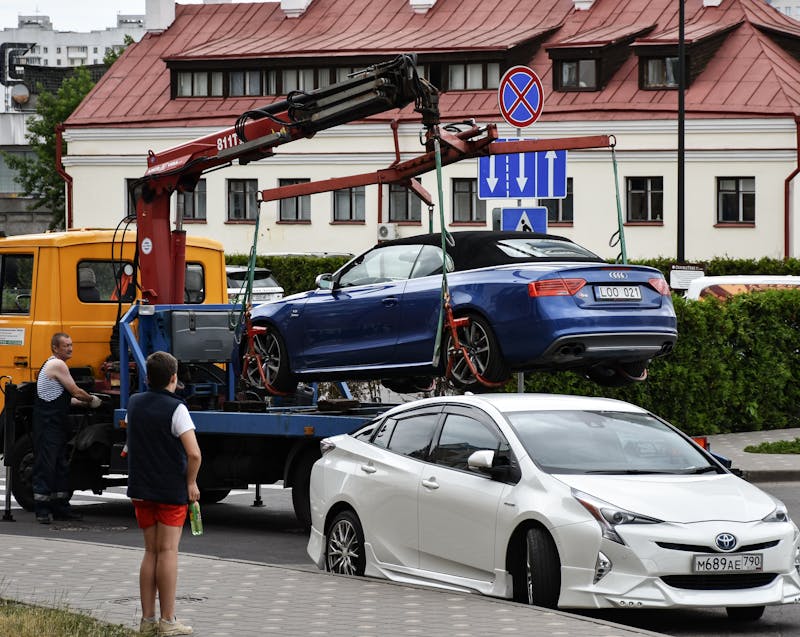
- Short-distance towing is ideal for quick, affordable, and safe transport of disabled vehicles to nearby repair shops or safe locations.
- Common problems that often require towing include dead batteries, flat tires, engine overheating, brake failure, and transmission issues.
- Driving a vehicle with mechanical or electrical issues can cause severe damage and pose serious safety risks—towing prevents further complications.
- Professional towing services offer fast response times, proper equipment, and experienced operators who can safely handle any roadside emergency.
- Preventive maintenance—such as regular fluid checks, tire inspections, and timely repairs—reduces the likelihood of breakdowns requiring towing.
- Always keep contact information for a reliable towing company that provides short-distance towing saved on your phone for emergencies.
- Knowing when to call for towing instead of attempting a DIY fix ensures both your safety and your vehicle’s long-term performance.
When you find yourself stranded just a few miles from home, work, or a local mechanic, calling for help from a towing company might not always be your first instinct. However, short-distance towing services are often the safest, quickest, and most cost-effective way to resolve unexpected vehicle issues without causing additional damage or risk. Understanding when to call for assistance can make a huge difference in both your safety and your car’s condition.
A towing company that provides short-distance towing specializes in helping drivers who experience minor to moderate car trouble within a limited radius—usually within 25 to 50 miles. Whether it’s a flat tire, an overheating engine, or a drained battery, knowing when to rely on professional towing can save you from bigger expenses later. This guide explores the most common vehicle issues that typically require short-distance towing and provides actionable advice for handling them safely and efficiently.
Understanding Short-Distance Towing
Short-distance towing refers to the transportation of a vehicle within a relatively small area—usually between your breakdown location and a nearby repair shop, home, or safe parking space. While long-distance towing often involves moving vehicles between cities or across regions, short-distance towing is all about immediate, local response and convenience.
Benefits of short-distance towing include:
- Quick response times: Since the service area is limited, tow trucks can reach you faster, reducing wait times in potentially unsafe conditions.
- Lower costs: The shorter the distance, the more affordable the towing fee tends to be.
- Reduced wear and tear: Moving a disabled vehicle by tow truck instead of forcing it to run in a compromised state prevents additional mechanical strain.
- Familiarity with the area: Local tow operators often know the best routes and nearby repair shops, ensuring your car is handled efficiently.
Short-distance towing services are ideal when your car is not drivable but only needs to be moved a short way to safety or repair, making them a valuable part of everyday vehicle support.
Common Vehicle Issues That Require Short-Distance Towing
Even the most well-maintained vehicles can experience sudden problems on the road. When certain issues occur, attempting to drive the car further may cause greater damage or even compromise your safety. Below are the most frequent reasons drivers need short-distance towing, along with advice on how to handle these situations.
1. Dead Battery or Electrical Failure
A dead battery is one of the most common reasons cars won’t start. Electrical issues can stem from a range of causes, such as corroded terminals, a failing alternator, or simply leaving the lights on overnight.
When a jump-start doesn’t work, it’s time to call a towing company that provides short-distance towing. The problem may go beyond the battery—your alternator or starter could be faulty, and these components need professional inspection.
Tips to prevent or manage battery failure:
- Schedule regular battery checks, especially before long trips.
- Replace your battery every 3–5 years or as recommended by your vehicle manufacturer.
- Keep jumper cables or a portable jump starter in your trunk, but don’t rely on them for recurring issues.
- Check for warning signs such as dim headlights, clicking sounds when turning the key, or frequent stalling.
2. Flat or Blown Tire
Flat tires can happen anywhere—on busy highways, quiet residential roads, or even in parking lots. While some drivers are comfortable changing a tire themselves, not all vehicles come with a spare tire or jack. Driving even a short distance on a flat tire can cause severe damage to your wheel rims, axles, and suspension.
Calling for short-distance towing ensures your vehicle reaches a tire shop safely without risking further damage or accidents.
What to do if you get a flat tire:
- Pull over to a safe area away from traffic and turn on your hazard lights.
- Avoid driving on a flat tire—it can damage your rim and alignment.
- If you don’t have a spare tire or proper tools, contact a nearby towing company.
- Regularly check tire pressure and inspect tires for punctures or cracks.
- Rotate your tires every 5,000–7,000 miles to ensure even wear.
3. Engine Overheating
An overheating engine is a serious issue that can cause irreversible damage if not handled immediately. Common causes include low coolant levels, a broken radiator, a failed water pump, or a faulty thermostat.
If your temperature gauge spikes or you see steam coming from the hood, pull over and turn off the engine right away. Continuing to drive can warp the cylinder head or blow a gasket—both costly repairs.
A towing company that offers short-distance towing can transport your vehicle to a nearby repair shop safely, allowing a mechanic to diagnose the problem without further risk.
How to prevent engine overheating:
- Check coolant levels regularly and top up when necessary.
- Have your radiator inspected for leaks during routine maintenance.
- Replace coolant every two to three years.
- Never remove the radiator cap while the engine is hot—it can cause serious burns.
4. Transmission Problems
Transmission issues can quickly immobilize your vehicle. Signs include difficulty shifting gears, grinding noises, fluid leaks, or slipping when accelerating. A malfunctioning transmission can make your car unsafe to drive even short distances.
Short-distance towing is the safest way to get your vehicle to a qualified mechanic for inspection and repair. Driving with transmission problems can cause additional internal damage that may require a full replacement.
Tips for identifying and preventing transmission issues:
- Check for red or brown fluid leaks under the car.
- Pay attention to strange noises or delays when shifting gears.
- Replace transmission fluid at manufacturer-recommended intervals.
- Have your transmission inspected immediately if warning lights appear.
5. Brake System Failures
Brake problems are among the most dangerous issues a driver can face. If you notice squeaking, grinding, or a soft brake pedal, you should stop driving immediately. In severe cases, brakes may fail entirely, making it impossible to control your speed or stop safely.
Calling a towing company that provides short-distance towing is crucial in this situation. Even if the vehicle seems drivable, continuing to operate it puts you and others at serious risk.
How to maintain your brake system:
- Schedule brake inspections at least once a year.
- Replace brake pads before they wear completely.
- Keep an eye on brake fluid levels and color—dark or dirty fluid should be replaced.
- If your brake warning light comes on, have the system checked immediately.
6. Engine Stalling or Failure to Start
A car that stalls or refuses to start can be caused by anything from a bad fuel pump to sensor issues or ignition failure. These problems can be unpredictable and may worsen if you continue trying to restart the vehicle.
Instead of repeatedly cranking the engine, which could drain the battery or flood the cylinders, arrange for a short-distance tow to a nearby mechanic. This ensures the vehicle gets a proper diagnostic without unnecessary strain.
Warning signs of engine failure or stalling:
- Jerky movements or sudden loss of power while driving.
- Difficulty starting, even with a full tank of gas.
- Unusual noises or vibrations when idling.
- Dashboard warning lights flashing intermittently.
7. Minor Collisions and Fender Benders
Even low-speed accidents can cause damage that isn’t immediately visible. A bent axle, damaged suspension, or misaligned frame can make driving unsafe. If you’ve been involved in a minor accident, short-distance towing is often the best way to get your car to a nearby body shop for inspection.
After a minor collision:
- Move your vehicle to a safe area if possible.
- Check for leaking fluids or smoke.
- Take photos for insurance purposes.
- Contact a towing service to prevent further mechanical damage.
- Avoid driving until a professional confirms it’s safe.
8. Locked-Out or Lost Key Situations
Getting locked out of your vehicle or losing your keys is more common than many drivers think. While locksmiths can often help, there are times when your car needs to be towed to a dealership or repair shop for reprogramming or key replacement.
What to do if you’re locked out or have lost your keys:
- Stay calm and check all doors before calling for help.
- If your keys are locked inside, avoid forcing the door open to prevent damage.
- If replacement keys are needed, arrange for your vehicle to be towed to a secure location or dealership.
- Keep a spare key at home or with a trusted friend.
9. Running Out of Fuel
Running out of gas may seem like a minor issue, but it can become a safety hazard on highways or remote roads. Instead of walking long distances or waiting for roadside refueling, short-distance towing can safely transport your vehicle to the nearest fuel station.
How to prevent running out of fuel:
- Refuel once your tank drops below a quarter full, especially before long drives.
- Use navigation apps to track nearby gas stations in unfamiliar areas.
- Keep a small emergency fuel container if your vehicle allows it.
- Avoid idling for long periods, as it wastes fuel unnecessarily.
When to Call for a Short-Distance Tow Instead of DIY Fixes
While some minor issues might seem manageable on your own, certain conditions make towing the better choice. Driving a compromised vehicle can lead to more severe damage or accidents.
Situations where you should call for towing instead of DIY repair:
- You’re stranded in a dangerous or high-traffic area.
- You don’t have the necessary tools, parts, or experience.
- The issue involves the brakes, transmission, or engine.
- You’re unsure of the problem’s cause and risk worsening it.
Professional towing services are equipped with the tools and expertise to handle these situations safely. They can also advise whether roadside assistance or short-distance towing is more suitable.
Choosing a Reliable Short-Distance Towing Company
Not all towing services are the same. When selecting a towing company that provides short-distance towing, look for one that prioritizes safety, reliability, and transparency.
Key qualities to look for include:
- 24/7 availability: Emergencies can happen anytime, so round-the-clock service is essential.
- Fast response times: Local operators who know the area can reach you more quickly.
- Transparent pricing: Avoid companies that refuse to provide clear cost estimates upfront.
- Professionalism and licensing: Ensure the company is insured and certified to operate legally.
- Positive reviews: Feedback from past customers can reveal a company’s service quality.
Having a trustworthy local towing provider on speed dial can save you time and stress when emergencies strike.
Final Thoughts
Every driver eventually faces a roadside problem, whether it’s a dead battery, a flat tire, or an unexpected breakdown. In these moments, knowing when to call for help can prevent unnecessary stress and costly repairs. A towing company that provides short-distance towing offers quick, reliable solutions for drivers who need assistance without the high costs or long waits associated with long-distance towing.
By understanding the most common issues that require short-distance towing—and knowing what steps to take before and after calling for help—you can protect your vehicle, your wallet, and your peace of mind. Keep your car maintained, stay alert for warning signs, and always have a reputable towing company’s number saved in your phone. With the right preparation and professional support, even the most inconvenient roadside problem can be handled safely and efficiently.


